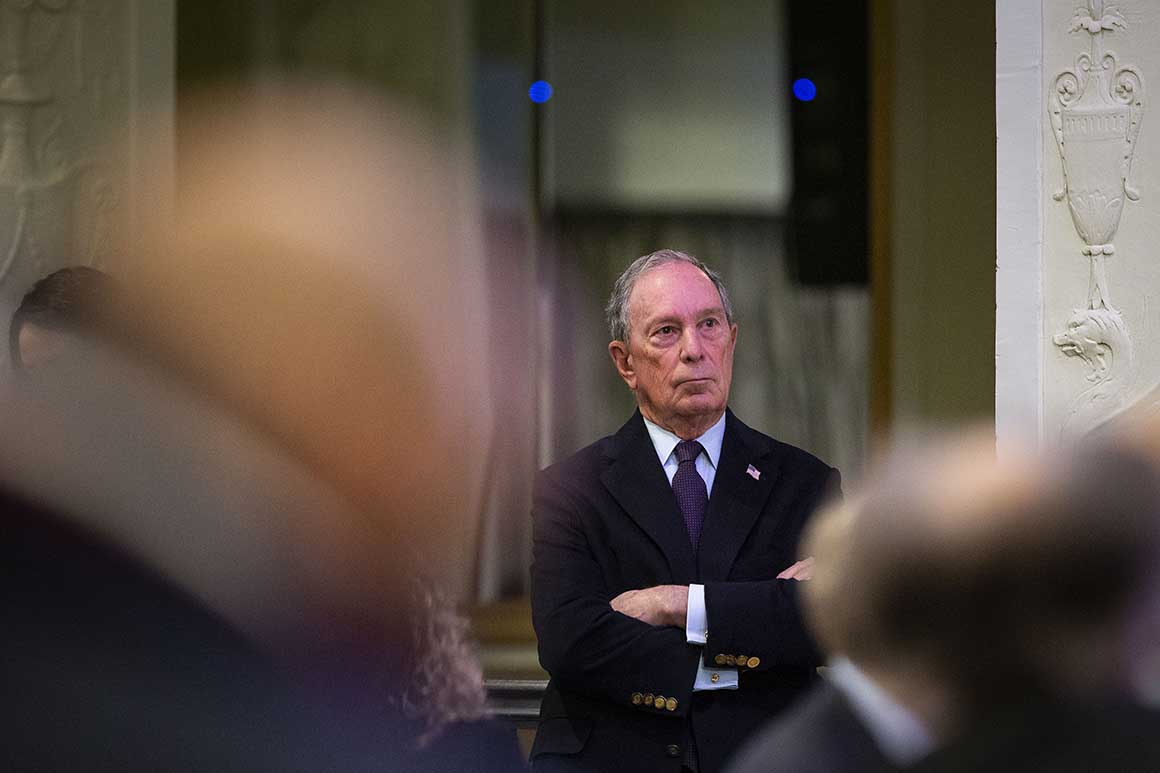
Bloomberg’s silence on his finances so far is legal, and it’s common for candidates to get deadlines extended when they file personal disclosures. But it’s a major departure from the last year of Democratic presidential campaigning, with candidates restricting their own fundraising voluntarily and engaging in a transparency arms race to disclose sources of both campaign cash and personal income.
And Bloomberg’s lack of financial disclosure runs counter to the fury surging through the Democratic Party at President Donald Trump’s refusal to release his tax returns and stonewalling of congressional oversight attempts. It’s no coincidence, either, that the 2020 field includes so many ethics sticklers: That’s one big way Democrats hope to draw a contrast between themselves and Trump in the fall.
Bloomberg has often blamed his late entry into the 2020 race for his unusual choices, such as not trying to qualify for the Democratic debates or skipping the Iowa caucuses. Critics see something else: A candidate with a history of buying his way around requirements that less wealthy politicians have to follow. He’s “skipping the democracy part of this,” Elizabeth Warren quipped in a recent MSNBC interview.
“Bloomberg just thinks that the rules do not apply to him,” said Monica Klein, a progressive political operative based in New York. “He feels like he’s a superior human being, and it’s to the detriment of working people.”
The Bloomberg campaign declined to comment for this article or answer questions about when he will release his tax returns.
Bloomberg’s approach to the 2020 race echoes the unorthodox way he approached the job of mayor, which included pushing to extend term limits on the office and using an email system not automatically archived under New York City public record laws.
As mayor, Bloomberg donated his company’s Bloomberg Terminals to City Hall, which allowed him to use a private bloomberg.net address to send and receive emails. After he left office, the city archives began seeking out emails from the private server, but received some emails back only after they had been reviewed by Bloomberg’s lawyers.
The city archives are still disputing how to archive the emails with Bloomberg, who left office in 2013, according to reporting in the New York-based site The City.
Bloomberg, an entrepreneur for more than four decades, built his fortune by trusting his own judgment and ignoring convention, said Bradley Tusk, who managed Bloomberg’s 2009 reelection bid.
“He certainly marches to his own drummer. He has a lot of confidence in his own ability to do the right thing, and he’s set up his own culture and system to manage effectively,” said Tusk. “He just does what he thinks is right.”
Bloomberg provided the press limited access to his tax returns while he was mayor, allowing reporters to view in person what the Wall Street Journal described as “highly redacted” versions of the filings each year. Reporters were not allowed to take copies or photographs.
The mayor also filed regular financial disclosures, but the disclosures required by New York City contain less financial information than disclosures required for candidates for president, and they are no longer on file with the city Conflicts of Interest Board.
Bloomberg’s approach strikes a particularly strong contrast to fellow billionaire Tom Steyer. Steyer released ten years of his own tax returns — totaling more than 3,000 pages — and frequently calls for reforms to campaign finance law on the campaign trail. Steyer has spent $100 million of his own money on television advertising alone during the 2020 race, more than any other candidate except Bloomberg.
Bloomberg’s extension on his financial disclosure, granted by the Federal Election Commission late last week, will last until March 20. It’s not uncommon for the FEC to grant such an extension.
But Bloomberg’s late entry into the race makes for an unusual set-up: Voters won’t have access to information they usually would be able to see about a candidate, showing potential conflicts of interest that the candidate could have if elected, or investments that are at odds with the values the candidate espouses.
“The notion that we can go through Super Tuesday without having this legally required information for a presidential candidate who is spending millions of dollars is troublesome,” said Meredith McGehee, executive director of the government oversight group Issue One. “The American people are being asked to make a decision about a candidate without information that, the law says, should be important.”
Sally Goldenberg contributed to this article.
Source: politico.com
See more here: news365.stream






